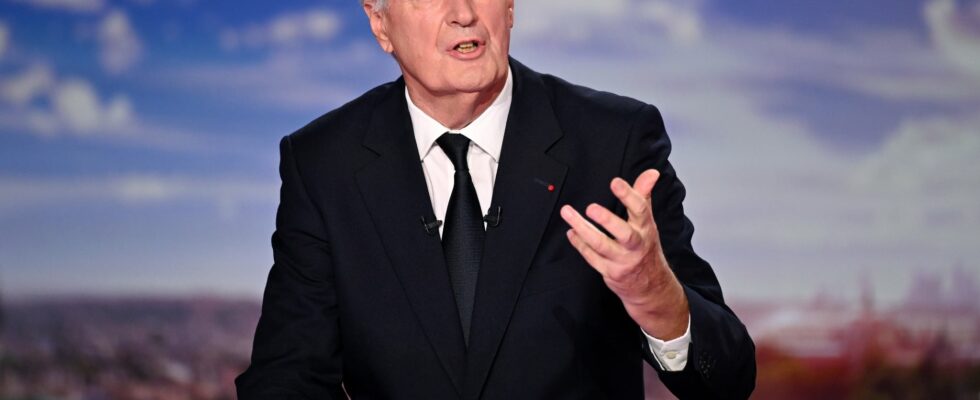The snub will remain in the annals of Macronism. On December 11, 2023, the National Assembly adopted a motion of rejection against the immigration bill, ordering Gérald Darmanin to review his copy. The left does not want a repressive text, the right cannot digest the regularization of illegal immigrants exercising a profession in tension. The “at the same time” is defeated. Of the two “radicalities” praised by the executive, each opposition retains the one it dislikes. A Renaissance executive then draws a lesson from this: this Macronist mantra is incompatible with the relative majority. “We put the helm to the left then to the right, and we lose part of the crew,” she notes. Only an absolute majority allows such an intellectual exercise.
The “at the same time” was in agony. The new National Assembly is giving it the last rites. The time has come for “compromises”, as Michel Barnier promised on France 2 on Sunday 22 September. The search for common denominators prevails over triangulation, the essence of Macronism. What are they in such a fragmented Assembly? The Prime Minister has not presented a programme, in public or to his interlocutors. Just broad guidelines, as vague as they are consensual.
“Thread of warm water”
“This government will be republican, progressive and European,” Michel Barnier told his ministers on Monday, September 23, during a meeting at Matignon. The stated priorities – “public service”, “security”, “ecological debt” – cover all areas of public action. The director Barnier is keeping his scenario secret. His promise to “improve pension reform” without achieving its “financial balance” is shrouded in mystery, as is his migration policy, which is relegated to the eternal “firmness/humanity” diptych. The participation of the “richest” in the “solidarity effort” is ultimately only a declaration of intent. Even the Minister of the Interior Bruno Retailleau, author of a martial speech on the “restoration of order” during the transfer of power, was careful not to specify his precise courses of action. Does he sense that he will not have an easy task in Parliament? The Vendéen insists this Monday in an interview with Figaro on the “significant regulatory powers” offered to the Beauvau holder to act.
A curious paradox: this executive with a right-wing coloring is the most ideologically identified since the election of Emmanuel Macron in 2017. But a hemicycle exploded like a puzzle sows doubt about his political choices. For Michel Barnier, ambiguity has the value of method. “I am not going to make my General Policy Statement before my General Policy Statement,” he blurted out to his predecessor Gabriel Attal during their exchanges. We will have to wait until October 1, the date of the speech, to learn more about the precise orientations of the government. Or even after? A member of parliament from Ensemble pour la République (EPR) recently joked about the “lukewarm water” that this speech could be, delivered by a man under the permanent threat of censorship.
Strategic imperative
The vagueness is the corollary of this constraint. Never has an executive had its hands so tied since the advent of the Fifth Republic. The left wants to bring down a government that it considers illegitimate; the National Rally (RN) enjoys its role as arbiter to impose its demands on it. The coalition built between LR and the central bloc, a minority in seats, brings together disparate profiles. Gabriel Attal and Laurent Wauquiez, allies of circumstance, are already posing as lookouts for their respective projects. This disconcerting fog. Some fear the advent of a right-wing policy, others sniff out a scent of radical socialism that is hardly intoxicating. It is above all a strategic imperative. “Barnier was not appointed on a program, but on his ability to dialogue and unite, notes a new minister. We have no choice but to dive in and see how it goes.”
The unprecedented configuration in the Assembly is disrupting temporal markers. The government is unveiled before its program. Former Beauvau tenant Gérald Darmanin proposed a few days ago to his camp to set red lines justifying a group exit from the government, without mentioning conditions for entry. Michel Barnier will not be able to play on this strategic ambiguity forever. The time will come to reveal his game. The phoney war with the oppositions – and sometimes within the coalition – could then move into another dimension.
